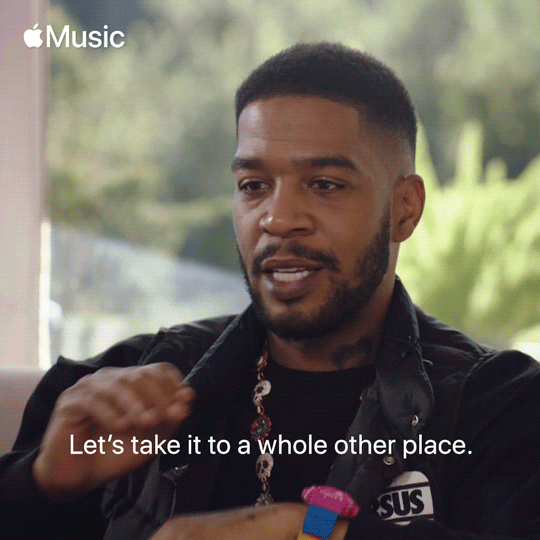
^^live footage of employees trying to figure out growth, promotions, compensation and all the struggles that come with growing a career in corporate America.
Have you worked somewhere that you constantly questioned: how am I ever going to advance my career here??? And when you asked questions about growth opportunities you left with more questions rather than answers?
I sure have!
I’ve also worked places where growth was entirely subjective and depended entirely on how much your manager liked you. And frankly you were f**ked if your manager felt at all threatened by your skills.
And I’m not alone!
Fact: growth at work can be confusing and it ends up being a top reason why employees leave.
✅ 74% of employees surveyed say that lack of development opportunities is holding them back from reaching their full potential.
✅46% of employees quitting cite lack of career growth opportunities.
What’s fueling the confusion about growth:
❌ Lack of clarity: if your org does not have clear goals/benchmarks your employees may struggle to understand growth opportunities.
❌Subjectivity: things look different manager to manager and it can be hard to align everyone around the critical skills needed for growth.
❌Lack of feedback: without feedback employees don’t know where/how to grow.
❌Org structure: sometimes there really isn’t a next step available at an organization.
There’s one more slightly complicated thing about employee growth…
It has to be a partnership between HR <> Managers.
HR could build a leveling structure, an equitable promotions process and train over and over again about the importance of giving feedback and managers could still fumble it all.
JOIN 130K+ HR LEADERS
Get insights, learnings, and advice on how to build companies and cultures that people actually love.
No spam. Unsubscribe any time.
Let’s look at 3 ways employees can grow at work and what HR and managers can do together to provide clarity rather than confusion.
New skills, who dis?

⚒️Learning new skills is the foundation for growth at work.
But employees and managers struggle to figure out exactly which skills should be learned.
A mix of technical and essential skills (what I used to call soft skills) is key.
Technical skills will depend on the role and could vary depending on industry. These skills are more easily quantified.
EX: Software Developer → learning a new language.
EX: Data Analyst → learning a new data visualization tool.
A cheat sheet for technical skills would be the ones listed on the job description as required.
On the other hand, essential skills are interpersonal or people skills and are related to how an employee interacts with others AND the environment. These skills are usually more subjective and revolve around behaviors.
EX: Communication → improve written communication to be more concise.
EX: Adaptability → improve ability to adjust to new circumstances.
EX: Time Management → improve ability to prioritize tasks to effectively meet deadlines.
How to effectively leverage skills as a lever for growth:
Skills are SUPER EASY to leverage for growth. But most managers are overworked and don’t have time to focus on figuring out what skills.
Here’s a low lift exercise for managers:
Managers should ask the following four questions to everyone on their team:
- What are your career goals?
- What skills do you think are needed to achieve those goals?
- Are there any areas of your current role that you are struggling with?
- Are there any new technologies that you are interested in learning more about?
Bonus: have managers do this in writing and now there is a record of what every employee’s career goals and what they want to learn.
✅ For HR: Simply by having managers do that exercise you’re sitting on a GOLD MINE of data in terms of what your employees WANT to learn.
Truly priceless.
New project, who dis?

If skills are the foundation, projects can be the framing on the house.
TBH: Focusing on skills is the easier, less advanced approach. If you have junior managers that are incredibly strapped for time, stick to that to leverage employee growth.
Focusing on project assignment as a form of growth for employees is a more advanced approach.
Why?
When exposing an employee to a new project they’ll encounter:
✅Increased responsibility
✅New skills that are needed
✅Challenges
✅Broader organizational exposure
✅Broader organizational pressure
See why I called it the ADVANCED option??
The worst thing a manager can do is assign a project to an employee as a form of growth then not be available to assist them on their journey. It’s setting up someone to essentially fail.
How to effectively leverage project as a lever for growth:
BTW: This approach takes more time and intentionality!
Here’s what managers must do:
- Define the project: what are the objectives, scope, deliverables and timeline for the project? By writing this out ahead of assigning to an employee you will uncover details that hopefully align with the employee’s growth goals. In the event the project does not align with an employee’s growth goals, I’d consider NOT assigning the project.
- Communicate expectations: This should be done verbally & in writing. I would book at least 45 minutes to do a deep dive on the project and cover all the details. The employee should leave with CLEAR knowledge on what success looks like for this assignment,
- Provide resources: What info, access, and tools does the employee need? Make sure to provide that all.
- Set goals and check in schedule: Managers cannot assign a project and expect to come back at the end of the project. Goals and feedback are critical to ensure the project is successful and the employee feels supported. Set a consistent check in schedule to touch base on the goals and deliver feedback.
- Celebrate wins. Recognition is key to reinforce great behavior as well as celebrate new skills and successes.
Remember: Clarity + alignment = successful execution of a project
✅ For HR: Be careful about managers coming to you with “performance issues” that potentially stem from their inability to set their team up for success by following the steps above. I’ve seen an employee go from being pathed to a promotion to being put on a PIP far too many times!
New promotion, who dis?

If skills are the foundation, projects the framing, the promotions are the roof??
IDK why I chose this house metaphor…
Anyways!
Promotions: I have mixed feelings on promotions.
When leveraged correctly promotions:
✅Increase responsibility, autonomy for decision making, and authority
✅Recognize an employee’s contributions and successes in the org
✅Be the next step in the employee’s career journey
✅Increase compensation
My mixed feelings on promotions come from the fact they:
❌Never feel timed right, usually someone is already doing the work when they are promoted.
❌Can be subjective
❌Have criteria I don’t agree with, like minimum time at the company to be eligible.
In order to leverage promotions successfully:
- Have clear promotion criteria: like skills, performance, competencies, and levels.
- Provide growth opportunities: see previous two sections!
- Promote transparency and fairness: share promotion criteria, selection criteria and how decisions are made.
- Develop succession plans: succession plans can help identify top talent, where you have a gap in the organization and who could be tapped for future leadership roles.
If employees are learning new skills, successfully taking on new projects and leveling up then it might be time for a promotion…
Leveling up:

Fairness and transparency are key when it comes to growth.
Growth at work cannot be subjective.
One way to solve this?
Having a proper leveling system.
Next week, I’ll dive into what that means, how leveling is key for equitable growth and how it can help scale your org properly.


